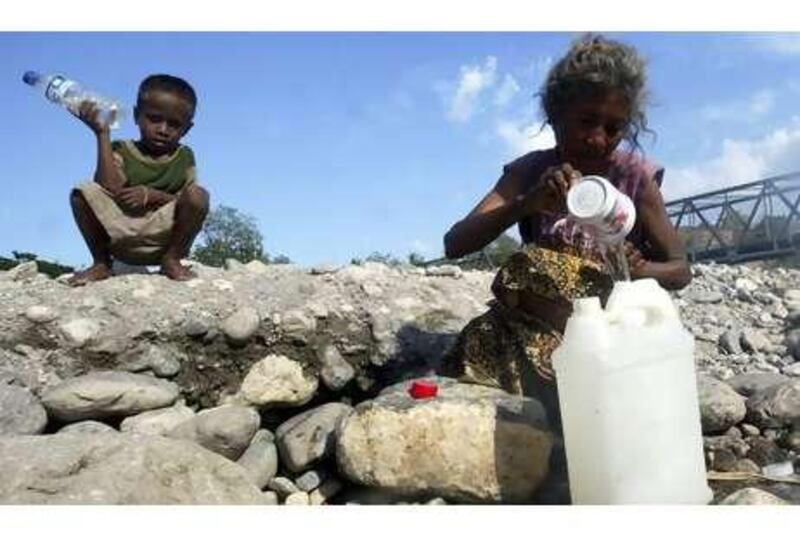East Timor, lying between Australia and Indonesia, is the newest sovereign nation in the world, having officially become independent in 2002. The nation, also called Timor Leste, has a population of just about a million but it also has official reserves of about US$5.3 billion (Dh19.46bn), making it one of largest holders of foreign reserves on a per capita basis. Most of the reserves are from offshore oil production carried out jointly with Australian companies. The country's GDP, which was about $700 million last year, is growing smartly at 7.2 per cent, aided by oil, and to a much lesser extent, by the export of coffee.
But proof if any is needed that the presence of oil and independence alone cannot solve all problems, East Timor also has an unemployment rate of about 20 per cent and a literacy rate of about just 40 per cent. The UN places it at 162 on a its Human Development Index scale, which makes it the second-worst country in Asia in terms of human development. East Timor's history accounts for its backwardness, as it was brutally colonised by the Portuguese for about 400 years and later occupied by the Indonesian military for another quarter of a century. As to be expected, more than 80 per cent of the population are subsistence farmers and ill suited to work in the only big industry going - oil.
Even some of the well-meaning financial rules put in from 1998 to 2002, when the UN was in charge and preparing the country for full independence from Indonesia, are now turning into problems. Afraid that the young nation might squander its new found oil wealth, the royalties from oil production were funnelled into a petroleum fund that is being saved for the long term, and only 3 per cent of it can be withdrawn for current expenditure.
It must have looked like a good idea at that time, but now we have a situation where the Timor government, governing a country in which 60 per cent of the population are illiterate, is being prevented from splashing out in a big way on education and other social needs. Instead the petroleum royalties piling up in the fund are being "safely" invested in US treasury bonds. In a recent meeting in the country's capital, Dili, the prime minister Xanana Gusmao told international donors that "the [Timorese] people do not need cash in American banks to help pay American deficits. President [Barack] Obama doesn't need our $5bn".
Indonesian occupation might have been brutal, but they also invested heavily in education and other infrastructure. Unfortunately, the Indonesian military destroyed most of what it created in 1998 and current expenditure, constrained by rules on how the petroleum reserves can be spent, is in some ways lower than the amount the Indonesians spent on human development. No less a person than Jeffrey Sachs, a renowned US economist and special adviser to the UN secretary general, has urged the government to rethink the way it uses its oil wealth.
Australia signed its petroleum production agreement about exploring oil in the Timor Gap while Timor was still under Indonesian rule and the Timorese say the agreement is one-sided and does not provide what is due to Timor under international law. Timor has invited the Malaysian oil company Petronas and other oil companies to come and produce in the Timor Gap area, but Australia has objected strongly.
Regardless of the fairness of the matter, it seems unlikely that Timor can strongly oppose the wishes of Australia. Australia is not only the nearest developed country, it also sent in its own troops to restore order in May 2006 when sections of the Timor military attempted a coup d'etat. Caught between its giant neighbours of Australia and Indonesia, and with a history of intervention for benign and not so benign reasons, East Timor, with its weak government institutions, has limited room for manoeuvre. The world can only hope that its newest country will find a way to spend its riches wisely and become richer in human terms, instead of just boasting high foreign reserves that fund US deficits.
@Email:business@thenational.ae






